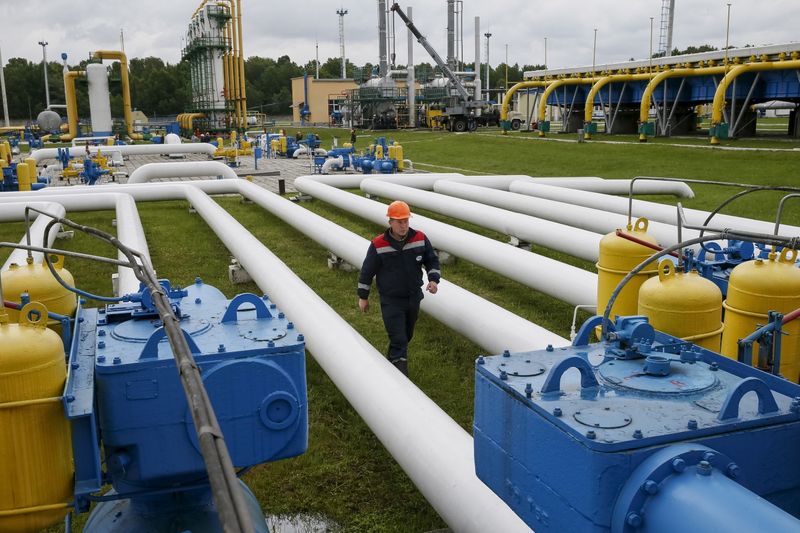(Reuters) – The top U.S. utility lobby group intends to push back on the Biden administration’s proposals requiring upgrades to existing natural gas-fired power plants to curb climate-warming emissions, two sources familiar with the matter said on Monday.
Resistance from the Edison Electric Institute (EEI), which represents investor-owned utilities that serve 250 million people, to the proposal could pose a problem for U.S. President Joe Biden’s plan to decarbonize the country’s power sector by 2035 – a critical pillar of his climate change agenda.
The power industry accounts for a quarter of the nation’s greenhouse gas emissions, second only to transportation, according to Environmental Protection Agency (EPA) data.
The EPA’s plan would require large existing natural gas-fired plants that run at least 50% of the time to install carbon capture by 2035 or co-fire with 30% hydrogen by 2032.
The rules would also regulate coal and new plants separately.
EEI said it was still finalizing its comments on the proposed rule and would not provide specifics.
“There are elements of the proposal that are favorable, and we are making recommendations to strengthen them; elements that are fixable with additional flexibilities; and elements that miss the mark,” EEI spokesperson Brian Reil said in a statement.
Areas of concern include regulations that would mandate a timeline for deploying carbon capture and storage (CCS) systems to suck up carbon emissions, according to a source briefed on EEI’s draft comments.
The group stated in a white paper in April, before EPA’s proposal was released, that “there are significantly fewer levers for technical and technological improvement for natural-gas based units when compared to coal-based units.”
It also said retrofitting those plants for CCS would be “difficult” due to space constraints and other limitations.
The second source familiar with the industry’s draft comments questioned why utilities are pushing back against the rules when they are already deploying technologies including CCS and hydrogen.
EEI and others have until Aug. 8 to submit comments on the proposed rules. The final rule will likely take about a year to be finalized.
EPA said it “looks forward to reviewing comments and constructively engaging with stakeholders as we work to finalize the proposed standards.”
Read the full article here





